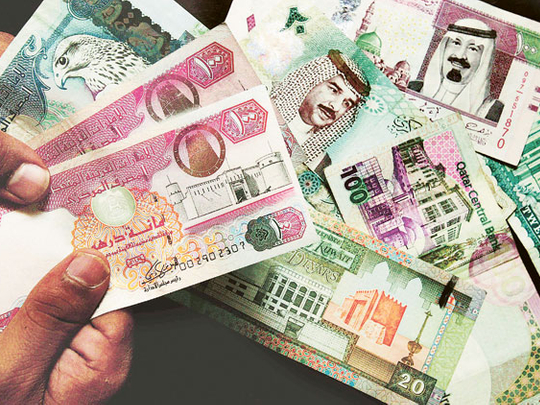
Dubai: GCC countries need to work harder to encourage cross-border trade, investment and a work towards a single currency, a report has claimed.
Booz and Company's think tank in the Middle East, the Ideation Centre, said in a paper that progress to date has more to do with individual efforts by the six members rather than the coordinated effort of the region.
"There has been progress but more could be done to bring more benefits," Hatem Samman, director of Ideation Centre, told Gulf News. "There still is a lot of focus on the individual but if you complement that with an integrated view, it will do the region good."
The GCC was founded in 1981 and is approaching its 30th anniversary.
The new report focuses on five areas of common concern such as monetary union, customs and borders, intra-regional investment, joint infrastructure and knowledge cooperation.
One of the issues that stands head and shoulders above others is a lack of unity on the call for a single GCC currency.
The study noted that the 2010 withdrawal "of the UAE and Oman from the proposed common currency is a major setback to its creation. It is difficult to imagine a monetary union and currency regime that excludes two the GCC's members; Such an effort could ultimately have an adverse effect by creating a two-tiered structure of integration".
Harmonisation
The GCC should look to harmonising legal and regulatory infrastructures as well as investing in national and regional statistics institutions to provide data that can move the region forward, the report said.
A strong move by the GCC to create a customs union agreement in 2003 helped increase intra-GCC non-oil exports between countries to 27 per cent annually as compared to 20 per cent around the globe.
That said, Samman pointed out that trade between members has never risen above 10 per cent of total trade numbers for the GCC when compared to 23 per cent annual trade figures for Asean members and 57 per cent figures for the EU.
Samman said that the GCC needs to work harder to boost job flow among nationals between countries.
As of 2007, for example, the report noted that only 27,000 GCC nationals (2 per cent) of the regional labour force of 15.6 million workers were working outside of their home countries in the region.
Of all categories, the GCC earned the highest points for its cooperation on $1 trillion (Dh3,67 trillion) worth of joint infrastructure deals now in the works to unify countries through transportation.
Railways
"In transportation, Qatar and Bahrain are planning a $4 billion causeway and high-speed rail link that will connect the two countries, and Oman is planning a super-expressway to connect Muscat with the UAE, planned to open by 2015," the report stated. "As a whole, the GCC is planning a 2,117 kilometre railway network at an estimated cost of $25 billion, to be built by 2017."
But even with a massive amount of work being done, the report said more coordination is needed to get it done more quickly.
"The GCC should consider creating an infrastructure monitoring board to evaluate and spur progress on large-scale regional infrastructure projects," the report said.












